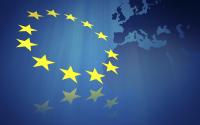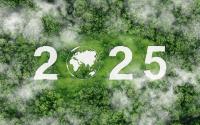11 December 2006von Richard Tomkins
Acolleague took her family on a round-the-world trip by air during the summer holidays. She and her husband saw it quite literally as the holiday of a lifetime. They believed it would be the family's last opportunity to enjoy such an experience before it was priced beyond their means. It is sad to think that the era of cheap air travel, having been with us so briefly, is already drawing to a close. It has enriched the lives of many people, whether to explore distant lands or to take a refreshing weekend break.
Yet it is the very popularity of cheap flights that will likely prove their nemesis, since air travel has become one of the fastest-growing sources of greenhouse gas emissions. As fears about the consequences of global warming grow, the calls for green taxes to curb air travel are turning into a clamour.
If there is going to be any point to a green tax on flying, it will have to amount to a lot more than just an irritating increase in the various levies already applied to airline tickets. It will have to be a tax so high that it really does prevent large numbers of people from travelling.
It is one thing to discourage smoking or drinking with so-called sin taxes but has there ever been a time in recent history when people have been required to cut down on, or give up, their use of an immensely popular modern technology for reasons other than temporary emergencies?
Air travel is not the half of it. The Stern review of the economics of climate change asserted that drastic reductions in carbon emissions from all sources would be necessary if environmental catastrophe were to be avoided. Most obviously this implies some kind of price rationing on road transport to reverse traffic growth. But we also face the likelihood that either the price mechanism or regulation will be introduced to curb our consumption of any or all carbon-intensive goods and services.
For those who lived during the second half of the 20th century, it is an extraordinary turn of events. It is almost as though somebody flicked a switch. One minute you are living happily in the age of more - next, you are plunged into the age of less.
In the industrialised world, it was axiomatic during the second half of the 20th century that, as incomes and living standards rose, we and the generations that followed us would do more, have more and travel more. For all but the poorest, hunger became a thing of the past and many people started enjoying more adventurous cuisines. As consumer spending rose, supermarkets and retail malls sprang up to make shopping easier and more convenient.
In the first half of the 21st century, however, we are confronted with the paradox of plenty. Economic expansion continues but there is a growing recognition that it can no longer automatically translate into more of everything for everybody. Instead, it is becoming axiomatic that we and the generations that follow us will have to make do with less.
Having only just grown accustomed to the idea of making personal sacrifices for the sake of our own health, we will soon be expected to make them on behalf of all humankind. We are looking at a future in which nearly all forms of unnecessary travel will be strongly discouraged through a combination of taxation and opprobrium. High commuting costs will force people back into the cities, the boom in second-home ownership will end and tourism will be identified as the world's number one environmental enemy.
But all is not gloom. Governments will be flush with cash thanks to the income from all these additional green taxes. Returning it to citizens through tax cuts elsewhere will make no sense because that would nullify the disincentive effect of the extra taxes. Therefore, they will be forced to spend it on improving public services, schools, the health service and pensions. Unless, of course, it all just gets wasted.






